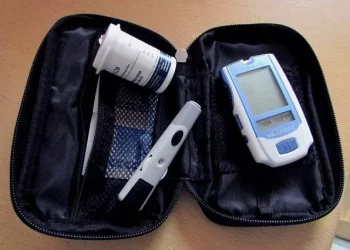Adults diagnosed with type 1 diabetes (T1D) face a significantly elevated risk of cardiovascular disease and premature death, according to new research from Sweden’s Karolinska Institutet. Contrary to previous assumptions, being diagnosed with T1D later in life does not necessarily lead to a better long-term prognosis when compared to early-onset T1D.
The study, published in the European Heart Journal, reveals that adult-onset T1D is associated with higher risks of heart disease and death from various causes, including cancer and infections. Major contributing factors to these risks include smoking, poor blood sugar control, and obesity.
“Research on adult-onset type 1 diabetes has been relatively limited,” said Yuxia Wei, a postdoctoral fellow at the Institute of Environmental Medicine at Karolinska Institutet. “Our findings show that individuals diagnosed after age 40 are not spared the serious complications commonly associated with earlier diagnoses.”
Study Analysis and Key Findings
The research analyzed data from 10,184 adults diagnosed with T1D between 2001 and 2020 and compared their outcomes with more than 509,000 matched controls. The results showed that individuals with adult-onset T1D had significantly higher rates of cardiovascular events and overall mortality compared to the general population.
The study also revealed that adults with T1D were less likely to use insulin pumps or other assistive technologies, which may play a role in suboptimal glucose control and worse health outcomes.
Looking Ahead: Risk Factors and Technology Use
Wei emphasized that future research will focus on identifying risk factors for developing T1D in adulthood and exploring other potential complications, such as microvascular damage. The team also plans to investigate the benefits of advanced diabetes technologies, including insulin pumps, in improving health outcomes for this group of patients.
Implications for Public Health
Funded by the Swedish Research Council and the Swedish Diabetes Foundation, this study highlights the serious health risks associated with adult-onset T1D. It underscores the need for more effective management strategies and the integration of advanced technologies in the treatment of diabetes.
As researchers continue to investigate ways to mitigate the risks of diabetes, this study calls attention to the critical need for early intervention and improved access to diabetes care for individuals diagnosed in adulthood.
Related topics:
Neurologist Recommends Magnesium for Brain Health and Alzheimer’s Prevention
Sugar Substitute Erythritol Linked to Increased Stroke Risk, Study Reveals
























